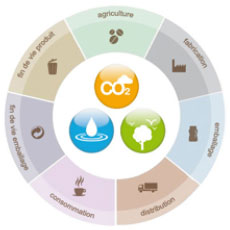Nestlé joins research effort to further improve products’ environmental performance
- Like
- Digg
- Del
- Tumblr
- VKontakte
- Buffer
- Love This
- Odnoklassniki
- Meneame
- Blogger
- Amazon
- Yahoo Mail
- Gmail
- AOL
- Newsvine
- HackerNews
- Evernote
- MySpace
- Mail.ru
- Viadeo
- Line
- Comments
- Yummly
- SMS
- Viber
- Telegram
- Subscribe
- Skype
- Facebook Messenger
- Kakao
- LiveJournal
- Yammer
- Edgar
- Fintel
- Mix
- Instapaper
- Copy Link
Posted: 19 April 2012 | Nestlé | No comments yet
Nestlé is joining a new research partnership between industry and academia…


Nestlé is joining a new research partnership between industry and academia that aims to improve the environmental performance of consumer products and services.
The company is the only global food and beverage manufacturer to join the ‘International Chair in Life Cycle Assessment’ unit at the Interuniversity Research Centre for the Life Cycle of Products, Processes and Services (CIRAIG) in Montreal, Canada.
Life cycle assessment is the most widely used scientific methodology for assessing products’ overall environmental impact.
CIRAIG is one of the largest research centres of its kind in the world. It generates new life cycle assessment knowledge, methods and tools, and shares these with its industry partners.
Nestlé is supporting its work with an investment of 500,000 Canadian dollars (almost CHF 460,000).
What is a life cycle assessment?


Nestlé’s approach to using life cycle assessments in all its product categories has enabled it to systematically improve the environmental performance of many of its popular products and systems.
“This partnership will help us expand our knowledge of life cycle assessments,” said Nestlé scientist Urs Schenker.
“We use them when developing products to measure areas of environmental impacts, for example water use in agriculture, CO2 emissions in manufacture, and the amount of energy used in distribution.”
Consumer communication
“The partnership will also help us to provide consumers with improved information about our products’ environmental performance, helping them make more informed decisions about what they buy,” added Mr Schenker.
“Online graphics such as the ones created by our Nescafé brand can help people understand the life cycle concept in an interesting and accessible way.”
Eco-design tools
As part of its product development process, Nestlé also conducts quicker versions of life cycle assessments using a selection of simple ‘eco-design’ tools.
One of these is the Packaging Impact Quick Evaluation Tool (PIQET), which can evaluate the environmental impact of packaging over its entire life cycle.
Such tools allow Nestlé to evaluate life cycle data early in the design stage, allowing the company to make modifications to improve products’ future environmental performance while they are still being developed.
Nestlé is currently developing a new eco-design tool which it plans to roll out later this year.




